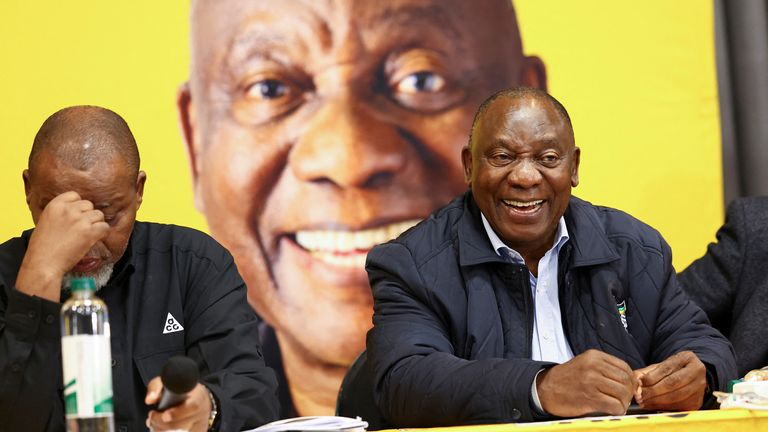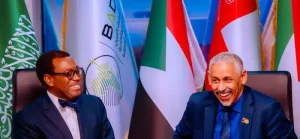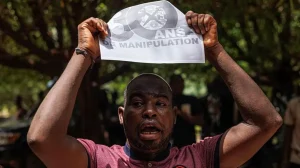
Cyril Ramaphosa has been re-elected for a second five-year term as President of South Africa. The victory follows the African National Congress (ANC) securing a coalition deal with the centre-right Democratic Alliance (DA) and smaller parties after losing its long-held controlling majority in last month’s election.
The ANC, which has ruled since the end of apartheid, captured only 40% of the vote, leading to this unprecedented power-sharing agreement. In a statement to parliament, Ramaphosa, 71, expressed gratitude for his re-election, calling it a “big responsibility” and highlighting the need for unity: “I am humbled and honoured to be elected again as president. This is what we shall do, and this is what I am committed to achieving as the president.”
This coalition marks a historic shift in South African politics, beginning a new era of cooperation between former rivals. Sihle Zikalala of the ANC commented on social media: “Today marks the beginning of a new era where we put our differences aside and unite for the betterment of all South Africans.”
John Steenhuisen, leader of the DA, echoed this sentiment, emphasizing the importance of collaboration: “We get an opportunity today to write a new chapter for South Africa, and that chapter, I think, can be the best chapter ever. No party has got a majority. We are required to work together, and we’re going to do it.”
The National Assembly, where the ANC holds 159 of its 400 seats and the DA has 87, commenced proceedings with the swearing-in of MPs. Despite initial reservations about partnering with the DA due to its perceived defense of white minority interests, the ANC has committed to this coalition in light of the nation’s pressing challenges, including poverty, economic stagnation, and resource shortages.








